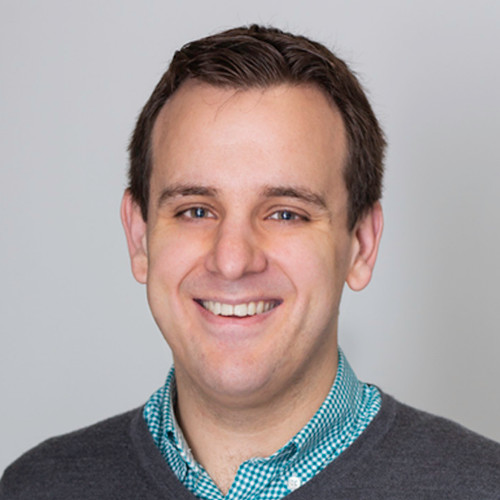Warning: The following review contains mild spoilers for Dune: Prophecy Season 1.
You’ve gotta feel for the team behind HBO’s Dune: Prophecy. Adding to any high-profile franchise is a daunting challenge, but following up two of the best-received sci-fi blockbusters in recent memory – Denis Villeneuve’s Dune: Part One and Part Two – is a near-impossible ask.
So, really, it’s no surprise that Dune: Prophecy creators Diane Ademu-John and Alison Schapker ultimately come up short. True, there’s a lot to like about the series, and it avoids many of the pitfalls associated with both spinoffs and prequels. Yet for all that, Dune: Prophecy Season 1 never quite delivers the revelatory experience you’d expect given its pedigree.
Inspired by Brian Herbert and Kevin J. Anderson’s Sisterhood of Dune (plus backstory cribbed from Frank Herbert’s original Dune novel), Dune: Prophecy unfolds over 10,000 years before its big screen counterparts. It charts the exploits of siblings Valya (Emily Watson) and Tula (Olivia Williams) Harkonnen as they steer the fledgling Bene Gesserit sisterhood. This includes overseeing the Bene Gesserit’s covert, universe-spanning eugenics experiment, which aims to ensure the right people wield power across the stars. It’s ticking along nicely too, until soldier-turned-shaman Desmond Hart (Travis Fimmel) arrives on the scene and jeopardizes not just the Bene Gesserit’s hold over Emperor Javicco Corrino (Mark Strong) and the Great Houses, but the future of the sisterhood itself.
Related: When Does Dune: Prophecy Come Out?
If nothing else, Dune: Prophecy deserves credit for not playing it safe. Focusing on House Harkonnen and the Bene Gesserit is a bold choice that brings fresh perspective to the franchise. After spending two whole movies as foils for Dune protagonist Paul Atreides, finally, we get their side of the story. Better still, showrunner Schapker and her writers’ room make us root for them – nothing to sneeze at, given their shady goals and methods. And speaking of methods, Dune: Prophecy showcases the Bene Gesserit’s superhuman abilities at least as memorably as the films. The sisters’ truth-saying powers are particularly well-realized, their surreal visions (along with other mystical happenings) suitably dazzling.

It’s all in-line with what Villeneuve’s Dune flicks served up, but crucially, never feels like an outright retread. As I alluded to earlier, Dune: Prophecy sidesteps the temptation most prequels succumb to (including its HBO cousin, House of the Dragon) of largely revisiting the same locales as what came before it. Indeed, Dune‘s iconic desert planet Arrakis is largely absent from the four Dune: Prophecy episodes supplied to press. Sure, Arrakis looms large over Season 1’s first four installments – even here, the spice must flow – but its economic (if not spiritual) significance is more of a background driver than a primary plot beat. Instead, Dune: Prophecy‘s focus is on the political intrigue on other planets barely glimpsed (if at all) in Dune: Part One and Part Two, all of them brought to life with impressive CGI vistas.
Related: All Major Actors & Cast List for Dune: Prophecy
So, with so much right about Dune: Prophecy, where does it go wrong? The obvious answer is the story. While Sisterhood of Dune is arguably one of the better Dune entries published after Frank Herbert’s death, it lacks the hook of the scribe’s first tome. Paul Atreides’ subversive hero’s journey – both on the page and on the screen – is simply more compelling than everything Valya, Tula, and the rest get up to in Dune: Prophecy. It’s also decidedly more focused than Dune: Prophecy‘s dense, subplot-heavy narrative, an increasingly bloated sandworm that ties itself in knots. In fairness, Season 1’s not hard to follow. But thanks to all the to-ing and fro-ing, it’s hard to fully connect with anyone outside of Valya and Tula. In this sense, Dune: Prophecy fares far less well than House of Dragon and its progenitor, Game of Thrones, which at their respective peaks set the standard for juggling sprawling casts and made-up geographies.

Equally, those shows offered up easier to parse themes. Admittedly, there are some interesting ideas at play in Dune: Prophecy. Notably, Season 1 continues the Dune franchise’s preoccupation with messianic figures, the power of prophecy, and systems of control. Ademu-John and Schapker take a decent stab at the gender politics of Herbert’s universe all, as well. Valya’s vocal compulsion powers are an obvious metaphor for women fighting to be heard; when that power is repelled – when she’s ignored by a male adversary – it’s as damaging to her as actual violence. This is hardly subtle stuff, but it’s reasonably effective. At the same time, it (along with the rest of Dune: Prophecy‘s headier subject matter) could’ve been pushed further. As it stands, the series feels a bit thin compared to the thematic richness of Villeneuve’s films.
Related: What Is Dune: Prophecy? The HBO Dune Prequel Series Explained
Which brings us neatly to the biggest problem with Dune: Prophecy: its not-so-filmic vibe. Villeneuve’s Fremen-like zeal for the theatrical experience imbued Dune: Part One and Two with an immersive, cinematic quality. By contrast (and despite some stellar costumes, sets, and VFX), Dune: Prophecy is unmistakably a TV show – and not the prestige kind. Heck, there are moments where you’d easily mistake it for a SYFY joint, not a production backed by HBO’s coffers. The visuals are occasionally a bit cheap-looking, the acting a smidgeon stilted. And even when the production values and performances are cinema-grade (the latter whenever Watson or Williams are on-screen) it’s never quite enough to elevate Season 1 as a whole.
That’s not to say that Dune: Prophecy is a complete disaster. It’s a solid (albeit uneven) effort that most sci-fi fans will happily tune in for. But the show’s ties to the wider Dune franchise foretold a small screen masterpiece, and sadly, that’s not a prophecy Season 1 follows through on.
Dune: Prophecy premieres on HBO and HBO Max on Nov. 17, 2024.






Published: Nov 11, 2024 09:35 am